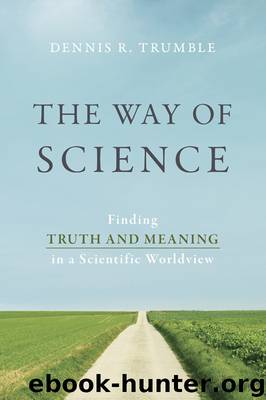The Way of Science by Dennis R. Trumble

Author:Dennis R. Trumble
Language: eng
Format: epub
Publisher: Prometheus Books
Published: 2013-06-12T16:00:00+00:00
TAKING ADVANTAGE
While it is increasingly apparent that the cohesive effects of religious faith helped to spur our development as a social species, it is equally clear that this is no longer the sensible strategy it once was. Despite the social upsides, the fact remains that all faith-based religions can be used as a powerful means to manipulate…and there will always be plenty of people willing to do just that. Doubters need only turn to page twenty-three of the Scam Handbook to learn what every con artist already knows: believers are notoriously “easy prey” owing to “their lack of critical thinking and selective attention to evidence.”11 So while most religious leaders might honestly believe they are safeguarding their flock by promoting the virtues of faith, what they are really doing is making things that much easier for the wolves of the world—including those in priest's clothing.
Trust can be a wonderful thing, but there is a world of difference between the kind of trust that is earned and the kind that is given away. The former is forged from experiences with other groups or individuals and is the cornerstone of all known social networks beyond the insect world. Indeed, of the five proposed mechanisms for the evolution of cooperation among humans—kin selection, direct reciprocity, indirect reciprocity, network reciprocity, and group selection—only kin selection operates without conscious consideration of costs and benefits.12 We instinctively feel obliged to help our relations in proportion to their relatedness—parents and siblings more than cousins, for example—but all others must first demonstrate that they can be trusted before they earn our cooperation.
There is one area of human discourse, however, where our finely honed lie-detection skills have been severely blunted if not bypassed altogether, and that is where cultural traditions come to us predigested via the most trusted source there is: our parents. Ironically, through the power of language, humanity has managed to accumulate a great deal of knowledge while at the same time preserving some astonishingly outdated ideas about the world by passing them unfiltered through the conduit of parental authority. This “trust by association” is not unique to humans, of course, but nowhere else is it more pronounced. And there are good reasons for this. Not only do we spend far more time under parental tutelage than any other species, but much of what we learn is received second-hand. Even in preliterate times the spoken word made possible the transference of all kinds of information, both real and imagined, without the need to experience everything for ourselves.
The evolutionary advantages of this approach to learning are obvious as most of nature's dangers are better experienced in the mind's eye rather than on the playing field. The downside is that people are left to judge the veracity of a great many things without benefit of direct personal experience, which means that much of what we think we know about the world is necessarily based on trust. Thus, how we apportion that trust is of critical importance if we are to make any real sense of the world in which we live.
Download
This site does not store any files on its server. We only index and link to content provided by other sites. Please contact the content providers to delete copyright contents if any and email us, we'll remove relevant links or contents immediately.
The remains of the day by Kazuo Ishiguro(8969)
Tools of Titans by Timothy Ferriss(8363)
Giovanni's Room by James Baldwin(7320)
The Black Swan by Nassim Nicholas Taleb(7105)
Inner Engineering: A Yogi's Guide to Joy by Sadhguru(6785)
The Way of Zen by Alan W. Watts(6600)
Asking the Right Questions: A Guide to Critical Thinking by M. Neil Browne & Stuart M. Keeley(5756)
The Power of Now: A Guide to Spiritual Enlightenment by Eckhart Tolle(5746)
The Six Wives Of Henry VIII (WOMEN IN HISTORY) by Fraser Antonia(5496)
Astrophysics for People in a Hurry by Neil DeGrasse Tyson(5180)
Housekeeping by Marilynne Robinson(4436)
12 Rules for Life by Jordan B. Peterson(4299)
Double Down (Diary of a Wimpy Kid Book 11) by Jeff Kinney(4259)
The Ethical Slut by Janet W. Hardy(4241)
Ikigai by Héctor García & Francesc Miralles(4238)
Skin in the Game by Nassim Nicholas Taleb(4235)
The Art of Happiness by The Dalai Lama(4123)
Skin in the Game: Hidden Asymmetries in Daily Life by Nassim Nicholas Taleb(3987)
Walking by Henry David Thoreau(3952)
